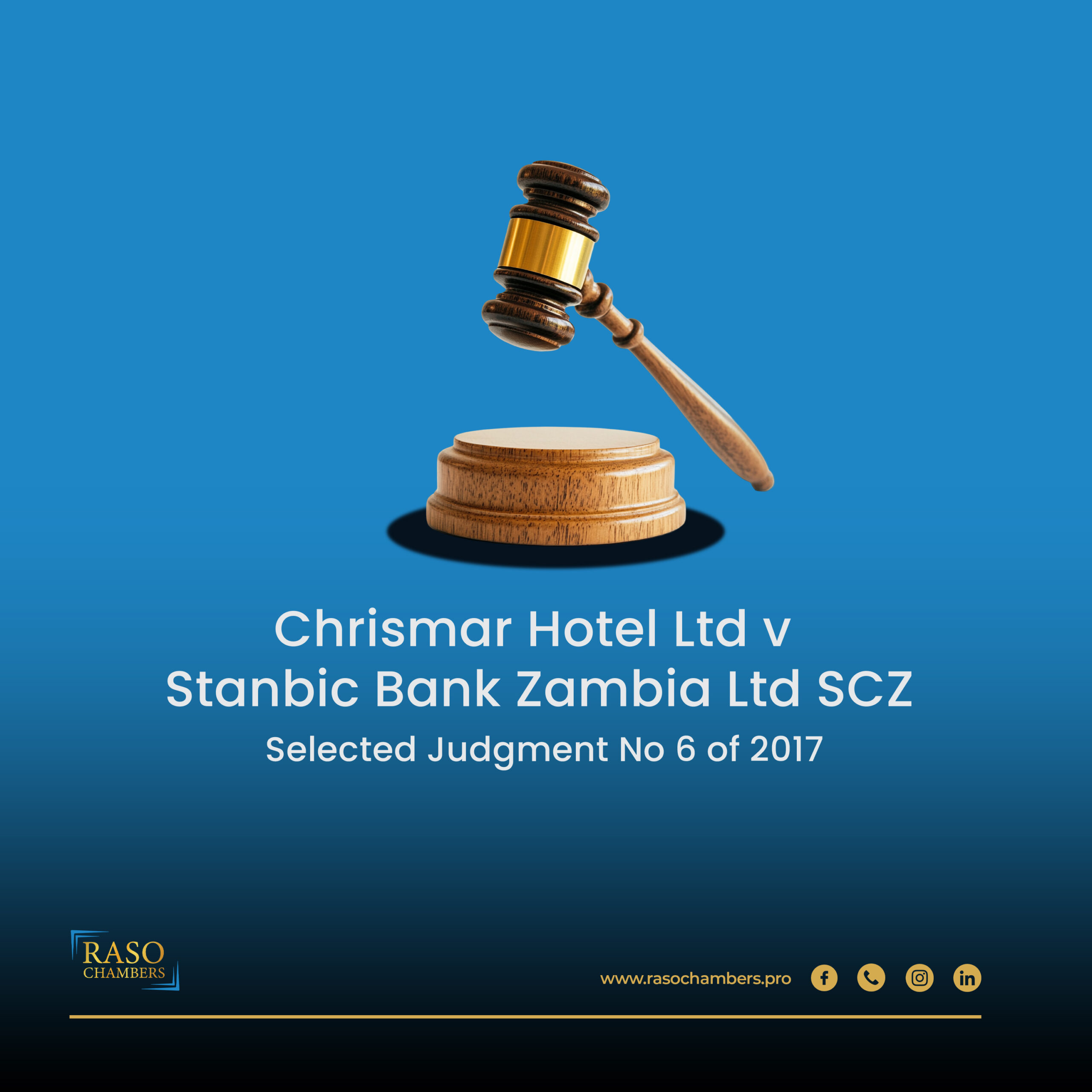BACKGROUND
In 2008, Chrismar Hotel Ltd sought financial assistance to purchase equipment, including earth-moving machinery. To secure funding, it approached Stanbic Bank Zambia Ltd, with which it had an established banking relationship, including multiple accounts, credit facilities, mortgages, and debentures. The bank agreed to provide the required financing.
As a result, the two parties entered into eight separate but identical finance lease agreements totaling $1.7 million. Each lease specified the amount financed and the applicable finance charges. The hotel secured the leases with third-party mortgages on two properties and agreed to repay the amount in 60 monthly installments, with the final payment due on May 30, 2013. By the end of the lease term, the total repayment amount was set at $2,280,121.
By December 4, 2012, Chrismar Hotel had already repaid $2,413,168.43. However, Stanbic Bank continued applying additional charges, including interest. The hotel, alleging breaches of the finance lease terms and legal violations, sued the bank. On May 23, 2016, the High Court dismissed the case, except for the claim concerning value-added tax (VAT), awarding costs against the hotel. Chrismar Hotel then appealed the ruling to the Supreme Court of Zambia.
APPELLANT ARGUMENTS
The appellant (Chrismar Hotel), argued that the bank created an overdraft facility on its account without consent and applied overdraft fees despite the absence of an agreement. Additionally, the bank imposed restructuring fees (extension charges) that were not part of the finance leases and continued to charge excessive interest and late fees, including compound interest and default interest, beyond what was contractually agreed. The appellant also claimed that the respondent had made unauthorized transfers between its Kwacha and Dollar accounts, which resulted in further financial burdens. Despite overpaying its obligations, the appellant found that the bank continued to levy additional charges, prompting the legal action.
RESPONDENT ARGUMENTS
The respondent(Standbic Bank) denied any wrongdoing and defended its actions by asserting that the overdraft was not an independent facility but a result of standing orders automatically covering lease payments. The bank argued that the finance leases permitted it to transfer funds between the appellant’s accounts to settle outstanding debts. Furthermore, the respondent maintained that the restructuring fee was justified because the bank had adjusted the appellant’s monthly repayment amount at the appellant’s request. Lastly, the bank contended that its application of compound interest and default charges was consistent with the terms of the finance leases and in compliance with Zambian banking regulations.
SUPREME COURT’S RULING
Hon. Chief Justice Dr. Mumba Malila, SC delivering the unanimous judgment of the Court ruled in favor of the appellant on six out of the eight grounds of appeal. It found that the respondent had acted unlawfully by creating an overdraft without consent and applying unauthorized charges. The court also determined that the bank’s transfer of funds between the appellant’s accounts without explicit authorization was improper. Regarding the restructuring fee, the court ruled that the respondent had no legal basis to impose it without prior agreement, describing it as an “extortionist” charge. Additionally, the court found that the bank had unfairly imposed charges beyond those contractually agreed upon. However, the court upheld the respondent’s right to charge compound interest, as permitted under the lease agreements, but rejected the additional default interest, deeming it punitive. As a remedy, the Supreme Court ordered the reversal of unauthorized overdraft charges and awarded costs against the bank.
CONCLUSION
The Supreme Court’s ruling reinforced the importance of contractual transparency and consumer protection in financial dealings and serves as a strong reminder that financial institutions must balance profitability with fairness.


